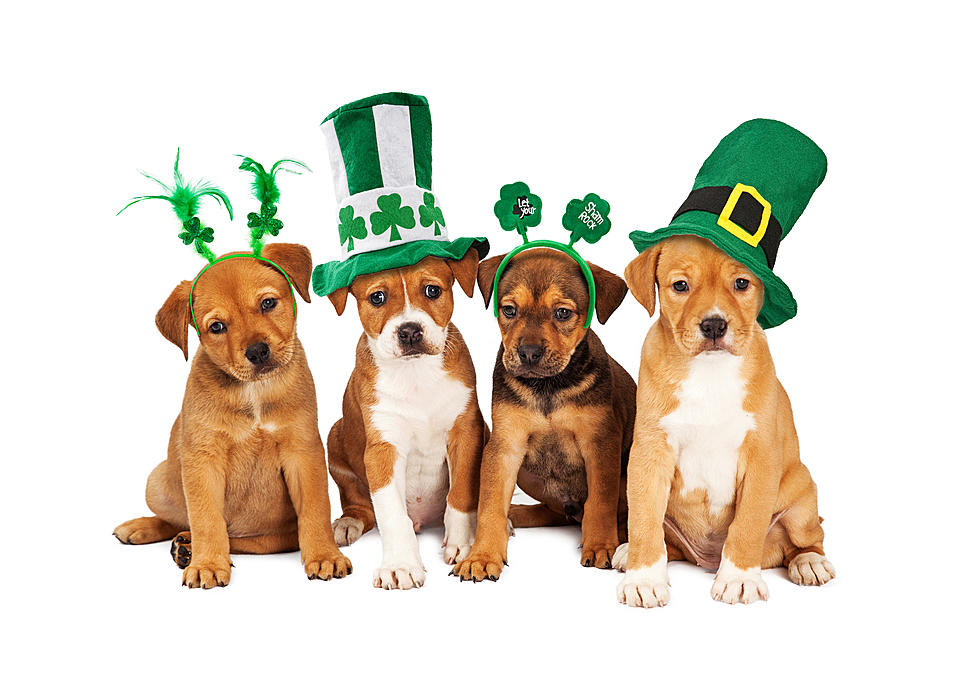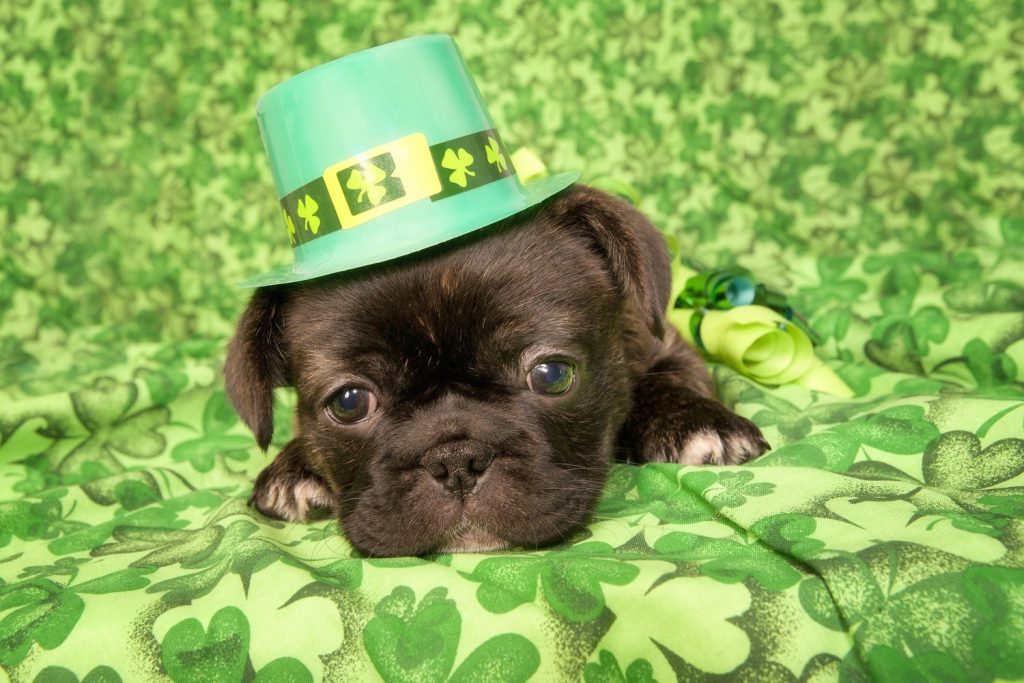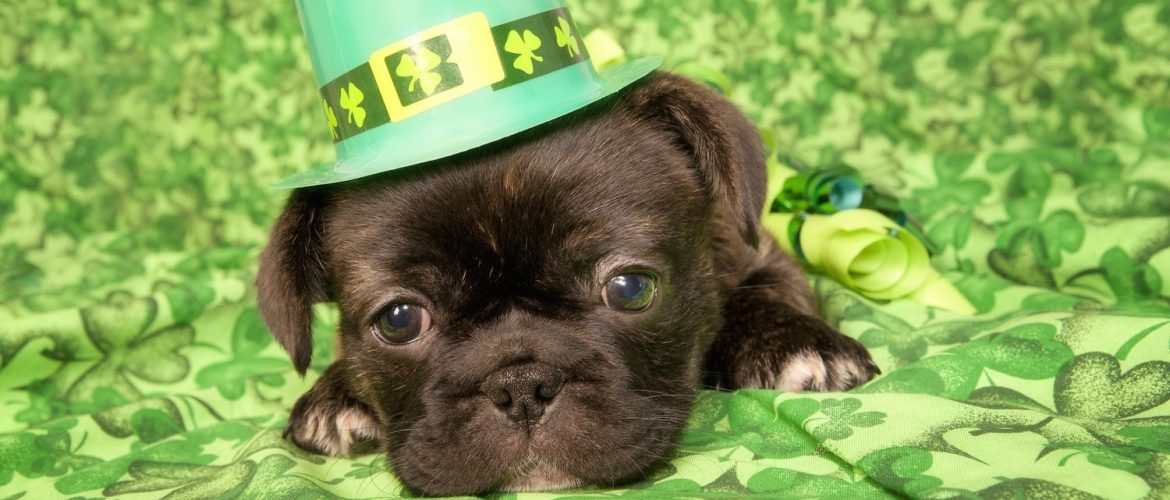
Although St. Patrick’s Day is a centuries-old holiday steeped in tradition and history, it’s no secret that many people associate it with alcohol, shamrocks and the color green. We’re all in favor of a festive celebration, but it’s important not to press your luck when it comes to pet safety. Thankfully, the ASPCA Animal Poison Control Center (APCC) is here to arm you with information to ensure that March 17 will be nothing but fun for you and your four-legged friends.
The Buzz on Beer
Green Beer
Green beer (and all other alcoholic beverages) have become a big part of St. Paddy’s Day celebrations. Unfortunately, many dogs—and even some cats—will happily lap up anything left out on the table, and APCC receives many calls about animals who have gotten into unattended alcoholic drinks. Typically, signs of depression and drunkenness in dogs appear within an hour of ingestion, including difficulty walking, sedation and stomach upset. If enough ethanol (the principal type of alcohol in alcoholic beverages) is ingested, coma may occur. In addition, one of the biggest concerns with intoxicated pets is that they will vomit and be unable to protect their airway. If this happens, they can inhale the vomit into their lungs and contract pneumonia, which can be very severe.
To avoid ethanol toxicity, APCC recommends keeping an eye on your beverages at all times, and never placing drinks at your pets’ level. Even better, keep your pets in a safe, quiet room away from the action until your St. Paddy’s celebration has wound down.
Shamrocks Aren’t So Lucky
Shamrocks
The common name “shamrock” can refer to several different plants, and it is always important to identify them by their scientific name. When the APCC receives calls about shamrocks around St. Patrick’s Day, Oxalis acetosella is typically the plant involved. These are often given to families and children in celebration of the holiday.
When pets ingest this plant, it can cause stomach upset, drooling and immediate head shaking. If a large amount is eaten, it can cause low blood calcium and damage to the kidneys. The good news is that these plants taste fairly bitter, meaning that most animals won’t be tempted to nibble it—but that doesn’t mean it never happens. Should your pet ingest shamrocks, call your veterinarian or the APCC immediately. As always, monitor the plants and items in and around your home, and take action at the first signs of pet poisoning.
Irish Soda Bread
Depending on how you celebrate you may have this popular St. Patrick’s day food item. This bread does contain raisins which can cause kidney failure in dogs. Be sure to keep this treat put up and away from where your furry friend can get to it. Don’t worry if your pup wants to join in on the celebration go for a veterinarian approved healthy treat.
If you can’t always monitor your pet during the party place them in a nice cozy and quiet area until the party comes to an end. This will keep your pet healthy and safe!

~At Heart Arrow We Love Pets~

